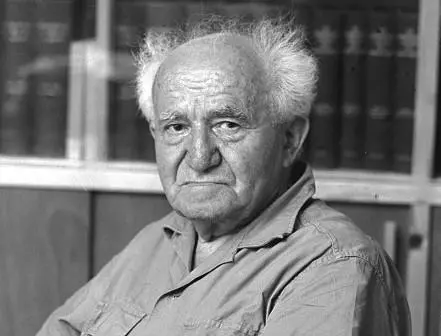Israël a affiché une délégation étrangère importante au Consumer Electronic Show (CES).
Au total, une trentaine de start-up israéliennes ont présenté leurs produits électroniques et digitaux au CES qui a eu lieu du 8 au 11 janvier 2019. Voici les jeunes pousses de la startup nation qui étaient à Las Vegas. A noter : L’entreprise israélienne Watergen, qui a développé une technologie permettant de créer de l’eau potable à partir de l’air, a été récompensée au Consumer Electronics Show (CES), le plus important rendez-vous mondial de l’électronique grand public, à Las Vegas, a rapporté jeudi le CBN News.
TriEye makes short wave infrared cameras for autonomous vehicles that can “see” even in in poor weather. The company won an award at CES in the embedded technologies category.
ASKA Drive & Fly is an autonomous flying vehicle that aims to transport commuters door-to-door using VTOL (vertical take-off and landing) technology. The company’s owner, New Future Transportation, unveiled the Drive & Fly at last year’s EcoMotion conference in Tel Aviv.
BrightWay Vision, like TriEye, has developed its own camera-based approach to piloting autonomous vehicles when visibility is poor. The company raised $25 million in 2019.
Chakratec deploys a kinetic energy flywheel suspended in mid-air by magnetic levitation to power electric car charge stations without needing to store electricity in batteries. That makes it more environmentally friendly and less prone to break downs. The company recently inked a deal with U.S. charging provider Blink Charging.
Who needs more bandwidth? You do – at home, where your Internet is probably running slow – but also in your car where more devices need to send and receive data but the physical infrastructure takes years to update. Cyphersip can upgrade legacy networks and industries for what it’s dubbed “the superband highway.”
Ever have trouble being understood while talking on a speakerphone in your car? Hi Auto can get you out of the muddle by training a camera on your face to watch your lips move. Add in some sophisticated algorithms and audio misunderstandings are no more.
By the end of this year, some 98% of new vehicles sold will be “connected” to the cloud. Which opens up dangerous possibilities for hackers. vSentry Edge AI from SafeRide monitors a vehicle’s “health” and reports back any anomalies. Machine learning allows SafeRide to understand a car’s “behavior “without any previous knowledge of the vehicle’s properties or protocols.
Video creation
Is the presenter appearing in that video tutorial real or computer generated? You’ll never know if video is built with technology from Hour One, which uses AI to make it possible for real video images to speak anything you want. The company says it’s useful for business tutorials, but will this further empower “deep fakes?”
So, you’re playing air guitar at home; wouldn’t it be great to see yourself in front of a huge crowd at Wembley Stadium? Spectalix can separate you and your guitar from the background and superimpose it anywhere you like, in live video or a pre-recorded clip. For musicians, athletes and creative agencies.
Air guitar in Wembley not enough for you? Tetavi can turn you into a hologram. The company supplies a kit of 4-8 cameras plus software to “volumetrically” capture your video. You can then place the video in a sporting event, a film production, a video game or a shopping application, no green screen required.
Health tech
It may be winter in much of the world, but come summer, the mosquitos will be back and you’ll want a device from Bzigo. The company uses computer vision and AI to detect mosquitos in your home environment and will show you exactly where on the wall they are. You still have to do the swatting yourself, but that could change in the future.
Essence Group will be showing its new multi-sensor fall detector, which uses the Texas Instruments radar-based mmWave sensor. The aim is to help elderly people lead independent, safer lives. A third of all elderly people living at home alone fall each year, the company reports.
Is your body using more fats or more carbs for fuel? Just breathe into this device from Israeli tech startup Lumen and you’ll get an instant readout of how your metabolism is working along with a personalized meal plan and daily workout tips to make the most of what you eat and how you exercise.
NovaSight is showing off the company’s new CureSight technology which treats amblyopia (lazy eye) at home while the patient watches his or her favorite TV shows. That makes for a much less invasive approach than typical eye-patching techniques for lazy eye. NovaSight is now looking to partner with broadcast and streaming networks to add to the amount and types of content available for the CureSight system.
Do you take nutritional supplements? Sometimes forget which ones you’ve taken? Or you’re just sure which are the right pills? Nutricco combines a diet-tracking app and recommendation engine with a multi-user automated pill dispenser (like a SodaStream for meds) so your nutrition is always on track.
Smart cities
Waycare was a shoo-in for CES – the company’s technology, which monitors traffic flow, is already in use in Las Vegas. Waycare uses traffic lights, road sensors, security cameras and data from connected cars to paint a picture of what’s really happening on the roads. With bumper-to-bumper traffic forecast for CES, that may be the best news of the show.
As climate change results in increasing desertification, making some regions drier, the ability to generate water from the air seems like science fiction. But GENNY from Watergen does just that. It’s a 50-kilogram home and office water generator that can produce a liter of water for just two cents. Each GENNY can produce up to 30 liters of water a day.
GENNY won the Energy Efficiency Product of the Year award in the 2020 Smart Home Mark of Excellence Awards at CES. Last year, the appliance won a CES Best of Innovation award.
Drones
Edgybees is making its second appearance at CES. The company helps emergency responders by overlaying augmented reality on top of video captured by rescue drones and then delivering that to the operators’ tablet computers. The technology was first proven during 2017’s Hurricane Irma in Florida.
Artificial Intelligence
OrCam’s Hear is a wearable device that uses artificial intelligence to allow Bluetooth-enabled hearing aids to distinguish speech more clearly. The technology won an award at CES in the accessibility category. (OrCam makes a range of visual assistance devices).
Cybersecurity
Firedome makes security software for IoT device manufacturers. It won an award at CES on in the cybersecurity and personal privacy category.





